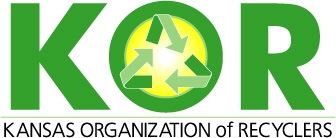HOUSEHOLD HAZARDOUS WASTE (HHW)
Household Hazardous Waste, or HHW, is material left over when you’re finished with a product containing hazardous substances. Some of the more common products include:
- Insecticides, pesticides and herbicides.
- Paint, paint strippers, paint thinners and turpentine.
- Photographic chemicals.
- Antifreeze, motor oil, batteries, gasoline, car wax and polish.
- Oven cleaners, furniture polish, mothballs, spot removers, drain cleaners and silver polish.
Proper disposal of HHW is a major environmental and health issue. HHW should not be dumped down a sink or storm drain – wastewater treatment plants are not designed to handle it.
Putting HHW in the trash isn’t the answer either.
It’s not safe for sanitation workers and hazardous materials in landfills can pollute ground water, surface water and air.
What can you do?
Begin by buying only what you need. If you end up with extra, share it. Your neighbor might be able to use paint leftover from your remodeling project. And, when there’s hazardous waste that must be disposed of, make sure you know and follow your community’s HHW program.
Where can I take HHW for disposal?
This user-friendly website can help you locate your nearest HHW drop off location: www.kansasrecycles.org
What’s the Plan?
Most communities have access to HHW collection programs, which allow materials to be recycled or properly disposed. In addition to holding collection events and establishing permanent collection facilities, many counties are exploring a different HHW option – regional programs. With this approach, participating counties share joint ownership of a mobile trailer used for temporary collection events. The HHW is then transported to a permitted facility until it can be properly disposed.
Some regional operations maintain short-term storage cabinets at satellite collection points until waste can be transported back to the central storage facility. Kansas is a pioneer of the regional concept, and has proven it is a successful and cost-effective means of managing HHW for less-populated counties that can’t efficiently support their own permanent HHW facilities.
What makes a product hazardous?
A product is considered hazardous if it is corrosive; ignitable; toxic; poisonous; infectious; or if it will react or explode when mixed with other substances.
What alternatives do you have?
Many household products are made of hazardous materials that can be replaced by safer products. The most prevalent household hazardous waste products are paints, pesticides and automotive products. And you might want to consider these options for around the house.
- Baking soda can replace scouring powder.
- Sprinkle salt on oven spills when they are warm and you won’t need oven cleaner.
- A 50/50 mix of vinegar and water makes a great glass cleaner.
- Paprika can keep an ant problem under control.
- Cedar chips work as well as mothballs – and smell a lot better!
Handling the hazard.
Before hazardous materials become waste, they are useful products. They fuel our cars, clean our carpets, and open drains. But they also can be dangerous and should be stored safely, away from children and pets. Use the original containers and keep labels intact.
Don't reuse the containers for other purposes. Don’t mix products unless instructed to do so by the label directions. Keep hazardous materials in a locked cabinet, located in a cool, dry area away from sparks and flame. Separate flammable, corrosive and poisonous materials and keep them on different shelves.
It might not be waste.
Did you know oil-based paint might last for up to 15 years? Latex paint may last for up to 10 years if stored properly. One person’s waste may be another’s treasure. Ask friends and neighbors if they can use your waste before disposing of it.
The big picture.
The U.S. Environmental Protection Agency estimates there’s as much as 100 pounds of HHW in the average American house.
By properly storing and disposing of HHW, we can help ensure the safety of our homes and environment. Look in your laundry room, basement, garage. Household hazardous waste is lurking, posing a risk for you, your family and the environment.
